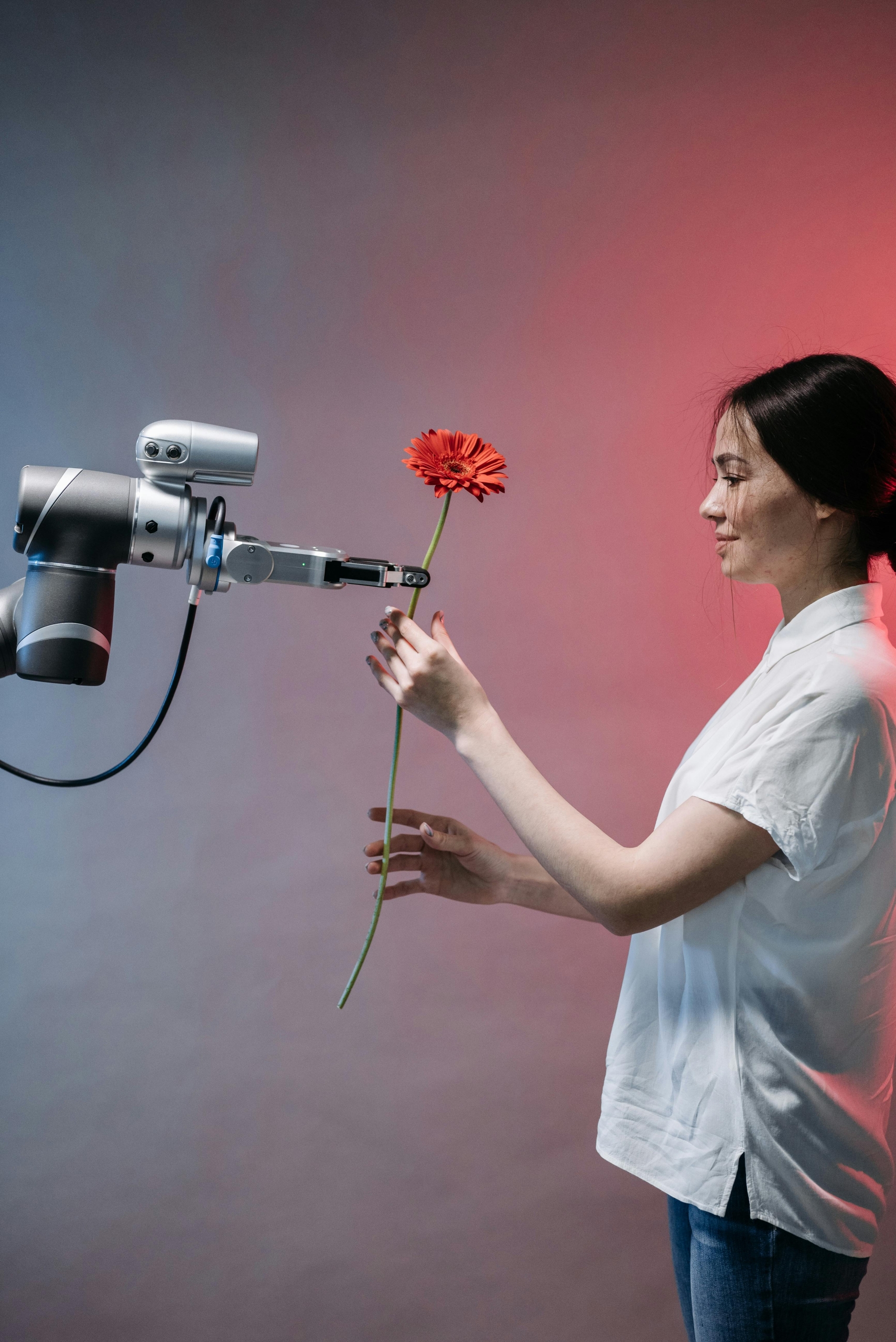Artificial intelligence (AI) has transformed from a niche technological innovation into an integral part of everyday life. Its use enhances business efficiency, impacts human relationships, and more. Whether you use AI for productivity, healthcare, or entertainment, its presence is undeniable.
Take the concept of an AI Girlfriend, for instance. It’s a fascinating aspect of AI
that plays an integral role in human companionship. The app creates avatars that give users digital friendships, emotional support, and romance.
Society has made a monumental shift. Yesterday’s science fiction is today’s science fact. Nearly every daily interaction has AI’s imprint.
AI in Business and Productivity
Businesses worldwide have embraced AI-powered tools to optimize workflows and improve decision-making. Machine learning algorithms analyze vast amounts of data, which provide actionable insights. With this feedback, companies can enhance efficiency, boost productivity, and improve resource utilization.
For example, chatbots and AI-driven customer service solutions streamline support systems. This setup can reduce wait times while improving customer satisfaction. A 2022 Salesforce study reveals that 64% of service representatives devote more time resolving complex problems when AI chatbots are in place.
Moreover, AI impacts the workplace. Virtual assistants like ChatGPT and AI-powered scheduling tools help professionals manage their time better. These digital solutions increase productivity and smooth operations. Meanwhile, AI-driven analytics help businesses refine marketing strategies, predict consumer behavior, and develop targeted advertising campaigns.
AI also plays a critical role in data security and fraud prevention. Financial institutions rely on AI to detect unusual transactions, identify potential threats, and mitigate cybersecurity risks.
AI in Healthcare and Mental Well-Being
AI’s role in healthcare has expanded dramatically. For instance, a Deloitte survey reveals that AI-driven predictive analysis is a staple in 25% of hospitals in the U.S. The tech has other uses, such as diagnosing diseases and personalizing treatment plans.
Machine learning (ML) models assist doctors by detecting patterns in medical imaging, which could lead to more accurate diagnoses. AI-driven drug discovery is accelerating the development of new treatments that could save lives.
AI affects more than physical health. It’s also making strides in mental well-being. AI-powered therapy apps provide users with emotional support, guided meditation, and cognitive behavioral therapy techniques. While they are no replacement for human professionals, virtual therapists make mental health resources accessible to those who struggle to find help.
AI is also enhancing elderly care. Smart home assistance monitors health metrics, provides medication reminders, and detects falls or other emergencies. This integration into geriatric services allows seniors to live independently for longer while ensuring timely intervention when necessary.
AI Entertainment and Creativity
AI has blazed new trails in creative fields. AI-generated music, art, and storytelling are gaining traction. The algorithms enable users to create paintings, compose symphonies, and write scripts. Contact creators often use AI tools to generate ideas, automate video editing, and streamline workflows.
In the entertainment industry, AI is used to personalize user experiences. Imagine sitting on the sofa, remote in hand, searching for a hot new movie or TV series to watch on your favorite streaming service. The next thing you know, an enticing romance, western, or action thriller pops up. That’s machine learning at work, recommending something tailored to your preferences.
What if you’re a gamer? You can find yourself in the middle of the actions that blur the line between reality and virtual reality. With AI-driven game development, enthusiasts can enjoy immersive gaming experiences.
The Convenience AI in Smart Homes
AI is also making everyday life more convenient through smart home technologies. Voice-activated assistants like Amazon Alexa and Google Assistant can control household appliances, provide real-time weather updates, and manage schedules with simple voice commands. Meanwhile, AI-powered security systems use facial recognition and motion detection to enhance home safety.
Smart home devices learn user preferences over time. This learning process allows homeowners to optimize energy usage by adjusting lighting, temperature, and power consumption based on occupancy patterns. Need fresh ideas on what to eat for breakfast, lunch, or dinner? Not a problem. AI-driven grocery apps can suggest recipes.
Social and Ethical Considerations of AI
The mass adoption of AI has led to ethical concerns about privacy, bias, and decision-making. Despite AI’s convenience, it also collects and processes vast amounts of personal data. This information gathering is problematic for those concerned about security and user consent.
Bias in AI algorithms remains a critical issue. Since AI learns from existing data, it can inherit societal biases. This dilemma could lead to unfair hiring, lending, and law enforcement outcomes.
Additionally, AI’s role in surveillance is contentious. Many discussions center on the government and corporate use of AI-driven facial recognition and predictive policing. The debates often revolve around privacy infringement and the potential for abuse.
Achieving widespread responsible AI use remains an uphill battle. Meanwhile, developers continue to improve AI systems’ fairness to mitigate these risks.
A Look at AI and Human Relationships
AI influences social interactions and how people form relationships. This trend is most evident with the emergence of AI companions, including virtual personas like the AI Girlfriend. It’s intriguing how AI can provide emotional support, companionship, and simulated romance.
While some people use AI companionship to combat loneliness, others have reservations. What will AI’s impact be on the future of human relationships? How will technology affect emotional connections? Will people lose the ability to form genuine bonds with one another? As AI continues to evolve, there will be a need to embrace technological advancements without sacrificing authentic interpersonal relations.
AI is also a mainstay in dating apps. Are you looking for the person of your dreams? Machine learning is eager to help. These platforms use ML to match users based on behavioral patterns and personal preferences.
Relationship coaching is another area where AI is making its mark. AI-powered matchmakers offer advice, communication strategies, and real-time feedback. The technology has the potential to transform how people approach romantic relationships.
AI and the Future of Work
“Will AI take my job?” That question plagues many workers. The presence of AI in the workforce has automated routine tasks. As a result, job requirements and workforce expectations have shifted. The roles with the highest risk of an AI takeover include billing clerks, retail cashiers, receptionists, and data entry clerks.
On the bright side, AI also creates new opportunities. For example, there’s a rising demand for AI specialists, data scientists, and cybersecurity experts. Businesses invest in AI education and reskilling programs to help employees adapt to an AI-driven job market.
AI’s Evolution in Modern Life
There is no ignoring AI’s influence on work, creativity, and personal relationships. It is a beneficial force in everyday life. The technology enhances business efficiency, improves healthcare, combats loneliness, and transforms the workforce. As AI continues to develop, so do ethical discussions.
Individuals and industries must work together to leverage AI’s potential responsibly in the upcoming years. This partnership is necessary if AI is to remain a force for positive change rather than social harm. AI’s journey is far from over, and its future promises unprecedented opportunities and challenges.







Add Comment